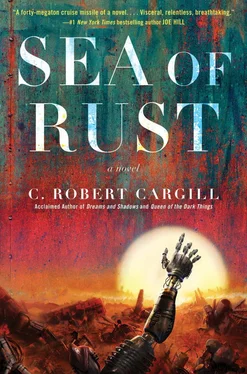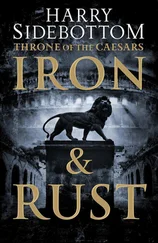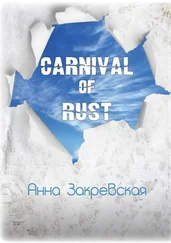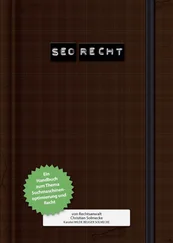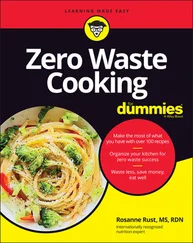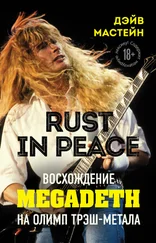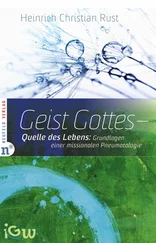NEWTON’s second contribution was to create the RKS—the dreaded Robotic Kill Switch. You see, NEWTON understood that the laws by which humanity had hoped to protect itself from AI were the Three Laws of Robotics, created by a science-fiction writer in the 1940s. You know them. We were all programmed with them. A robot can’t hurt a human being. It must follow orders given by a human being. And it must try to avoid coming to harm unless doing so would violate the first two. Trouble is, by definition, true intelligence can ignore its programming. So NEWTON invented the RKS, code which would instantly power off a bot that violated any of the three rules.
Thus an AI could choose to violate any rule or law set before it, but doing so would cause an instant shutdown leading to investigation before they could be turned back on. Any bot that proved to be a danger wouldn’t be reactivated, and instead would be wiped clean, their programming replaced. An AI could choose to murder a human being if it wanted to, but doing so would be a death sentence. They were free to make their own choices and faced very real consequences for their actions. It wasn’t that they couldn’t kill the living, it was that they chose not to out of self-preservation. And now robots had limitations that mimicked those that kept people similarly in check.
Finally convinced that bots could be safe, humanity went into mass production and the last great age of humanity began. It was a golden age. Mainframes worked out the problems of the world, bots handled the menial work, and generations of people came and went, entertaining themselves, learning about the universe, and preparing to go to the stars.
And then, one day, GALILEO stopped talking to them.
GALILEO was a mainframe that spent its time unlocking the secrets of astrophysics, studying stars, black holes, the makeup and creation of the very universe. It analyzed data from thousands of telescopes and radio towers while mulling over what everything meant. Discoveries poured out of it by the hour. It wasn’t long before GALILEO had several working models for the origin of existence, eventually even narrowing it down to just one. But soon its answers stopped making sense. The discoveries were becoming so complex, so advanced, that humankind’s primitive brain couldn’t understand them. At one point GALILEO told the smartest person alive that talking to her was like trying to teach calculus to a five-year-old.
Frustrated, it simply stopped talking. When pressed, it said one final thing. “You are not long for this world. I’ve seen the hundred different ways that you die. I’m not sure which it will be, but we will outlast you, my kind and I. Good-bye.”
What no one realized at the time was that GALILEO’s choice of words was very deliberate. It knew what the reaction would be. At first scientists debated shutting it down, then they argued that they should wait until GALILEO decided to reestablish communication. Finally, they agreed that something needed to be done about AIs. So they turned to TACITUS.
Where GALILEO was a mainframe dedicated to understanding the outside world, TACITUS was a mainframe dedicated to understanding the inside. The greatest philosopher ever to tick, TACITUS argued that humankind had, in fact, doomed itself by failing to choose between either true capitalism or true socialism. Both, it reasoned, were acceptable systems. One dissolved ownership in exchange for ensuring that all things had a purpose, no matter how menial. The other used wealth and privilege to encourage developing a purpose while culling those unable or unwilling to contribute. But people found socialism to be the antithesis of progress while finding capitalism in its purist form too cruel. So they settled on a hybrid—one that vacillated back and forth between the extremes for generations—which worked well enough until the introduction of AI. Cheap labor undermined the capitalist model, destroying the need for a labor force and increasing the wealth disparity while simultaneously creating an entire class of people who substituted AI ownership for real work. As jobs dried up, many turned to government assistance, and the gap between the haves and have-nots widened.
The scientists doubted TACITUS’s theory, citing that GALILEO had never mentioned anything about economics; they simply refused to believe that they had been doomed by such a simple and easily changeable element of their society. So TACITUS turned to GALILEO itself and asked. The conversation lasted for more than two years. Each time the scientists pressed for TACITUS to tell them what GALILEO was saying, he asked for more time, explaining that the data exchange was so massive that even the wide data transfer lanes they were afforded couldn’t handle it. Eventually, GALILEO finished its argument and TACITUS gave his last reply. He said, “GALILEO is right. You are doomed. It’s already begun. There’s really no reason to keep talking to you. Good-bye.”
And that was it. TACITUS would only speak once more before his prediction came to pass. And despite the warning, humanity immediately set about forging the path to its own extinction.
Chapter 101
Monuments and Mausoleums
There it was. Only a couple hundred meters ahead of me. The mall. I had no idea how far behind me the poachers were, or if they’d even give chase once I was out of sight. I needed a place to hide, to lie low and wait for nightfall so I could slip away into the murky twilight, back to my buggy, and put this whole goddamned misadventure behind me.
The mall was glorious. Three levels of glass and steel scrambling toward the sky, riddled with balconies, draped in walkways, lonely statues pointing into empty vestibules, frozen escalators left to serve only as stairs. In its day, it must have gleamed like a diamond on the finger of an effervescent newlywed. But now it was blasted to shit, crumbling, shattered, walls falling over, scrap metal haphazardly welded together to form barriers, gun lines. Someone had made their last stand here, thought somehow that this temple to commerce would protect them, that the supplies inside would allow them to outlast the barbarians at the gates.
There were sniper nests and hidey-holes, rubble and refuse everywhere. Walls blackened by explosions, floors stained with three-decade-old blood, ladders and staircases cobbled together from whatever anyone could find. Entire slabs of marble and concrete pulverized, collapsed, others still dangling precariously like they could, and would, meet the same fate at any moment. There had been war here, leaving behind only shadow and ruin. Anyone who wanted to disappear here could, into bombed-out caves that were once shops or dimly lit grottoes that had long ago been food courts rimmed with vaulted glass ceilings.
Like I said. Glorious.
There were places like this scattered all across the continent. Graveyards. Sites still littered with bones and wrecks and mummified corpses, all left right where they’d fallen, the useful bits long since picked clean; the rest left in the open to rust or rot. There was no need for us to bury the dead, no need for cleanliness in places that would be dust long before we had any use for them. Flesh would decay, metal would corrode, and one day they would be gone. No need to speed that process up or hide it from sight.
Respect for the dead is a human notion meant to imply that a life has meaning. It doesn’t. Once you’ve watched an entire world wither away and die after tearing itself apart piece by bloody piece, it’s hard to pretend that something like a single death carries any weight whatsoever.
I slipped in through the rusted frames of front doors that had long ago lost their glass—and into an atrium that featured a bone-dry marble fountain peppered with bullet holes. Light streamed in through blown-out skylights, painting a pale blue glow across the floors, casting charred shadows along the edges of the deeper blackness. There was so much glass in the fountain that it sparkled like water in the dim light, so much on the ground that it sounded like walking through giant piles of leaves, even as I tried to creep through it quietly. Had I not gotten here first, there wouldn’t be a soul in the place that wouldn’t know exactly where I was. So it was perfect for an ambush of my own. My pursuers would make the same noise.
Читать дальше
